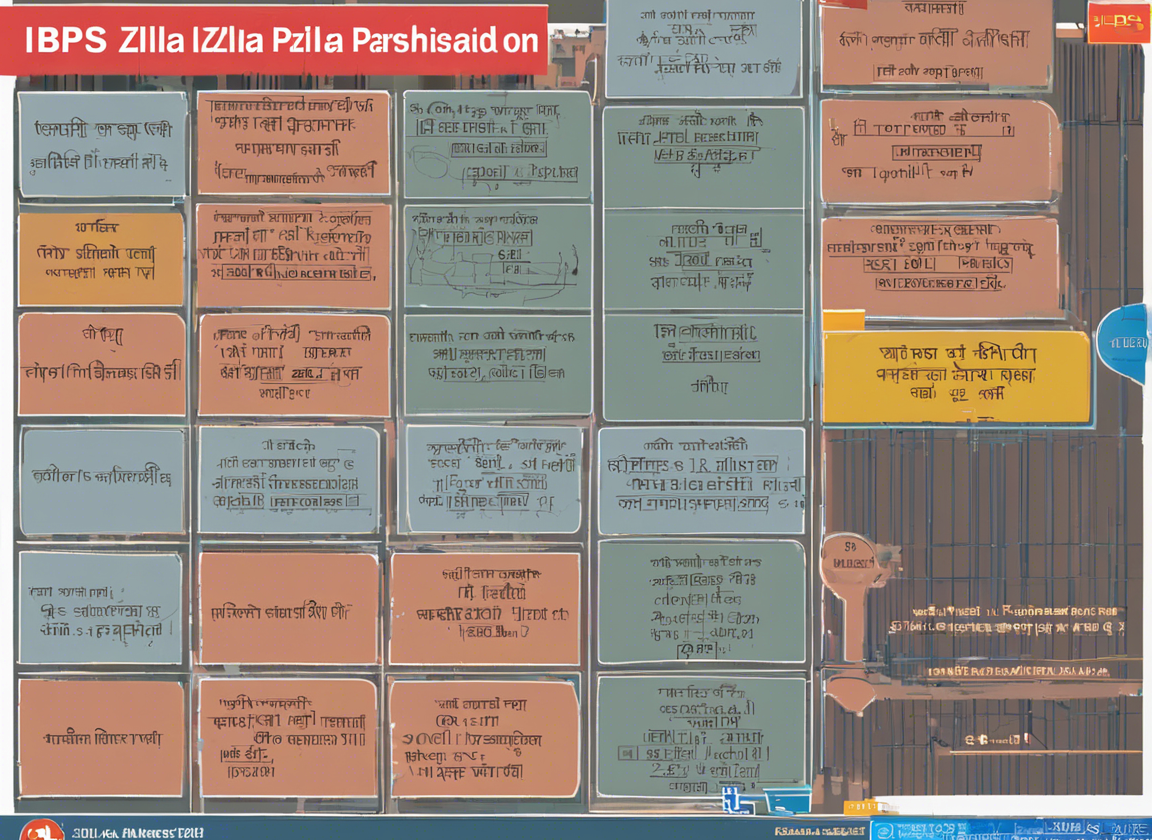Ultimate Guide to IBPS Zilla Parishad Exams

Introduction:
In India, the Institute of Banking Personnel Selection (IBPS) conducts various exams for recruitment in different sectors of the banking industry. One such exam is the IBPS Zilla Parishad exam, which is conducted for the selection of candidates for various posts in Zilla Parishad, a local government body at the district level. This comprehensive guide will provide you with all the information you need to know about the IBPS Zilla Parishad exams, including the exam pattern, syllabus, preparation tips, and more.
Exam Pattern:
The IBPS Zilla Parishad exam follows a similar pattern to other IBPS exams, with slight variations based on the specific job role applied for. The common exam pattern generally consists of the following sections:
1. Reasoning: This section tests the candidate’s logical and analytical reasoning skills.
2. Quantitative Aptitude: This section tests the candidate’s mathematical and numerical ability.
3. English Language: This section assesses the candidate’s proficiency in the English language.
4. General Awareness: This section tests the candidate’s knowledge of current affairs, general knowledge, and banking awareness.
5. Computer Knowledge: This section assesses the candidate’s knowledge of basic computer concepts and applications.
Syllabus:
Understanding the syllabus is crucial for effective preparation. The syllabus for the IBPS Zilla Parishad exam covers a wide range of topics, including but not limited to:
– Reasoning: Puzzles, seating arrangement, syllogism, blood relations, etc.
– Quantitative Aptitude: Number system, simplification, data interpretation, time and work, etc.
– English Language: Reading comprehension, grammar, vocabulary, etc.
– General Awareness: Current affairs, Indian economy, budget and five-year plans, countries and capitals, etc.
– Computer Knowledge: History of computers, internet, MS Office, input and output devices, etc.
Preparation Tips:
Preparing for the IBPS Zilla Parishad exam requires dedication and a strategic approach. Here are some tips to help you excel in the exam:
– Understand the Exam Pattern: Familiarize yourself with the exam pattern to know what to expect.
– Create a Study Plan: Develop a study plan that allocates sufficient time to each section of the exam.
– Practice Regularly: Practice mock tests and previous year’s question papers to improve speed and accuracy.
– Stay Updated: Keep yourself updated with current affairs and general knowledge by reading newspapers and magazines.
– Seek Guidance: Consider joining a coaching institute or online platform for expert guidance and study materials.
FAQs (Frequently Asked Questions):
1. What is the eligibility criteria for the IBPS Zilla Parishad exam?
– The eligibility criteria vary based on the specific job role applied for. However, candidates generally need to have a bachelor’s degree from a recognized university.
- How many stages are there in the IBPS Zilla Parishad exam?
-
The exam typically consists of two stages: a preliminary exam and a mains exam. Some posts may also have a personal interview round.
-
Is there negative marking in the IBPS Zilla Parishad exam?
-
Yes, there is a penalty for wrong answers. For every incorrect answer, a certain number of marks are deducted.
-
Can I apply for multiple posts in the IBPS Zilla Parishad exam?
-
Yes, candidates can apply for multiple posts based on their eligibility criteria. However, they need to fill out separate application forms for each post.
-
How can I download the admit card for the IBPS Zilla Parishad exam?
- The admit card is typically available for download on the official IBPS website. Candidates need to log in using their registration details to access and download the admit card.
In conclusion, the IBPS Zilla Parishad exam is a competitive but rewarding opportunity for individuals looking to make a career in the government banking sector at the district level. With proper preparation, dedication, and a focused approach, candidates can crack the exam and secure a coveted position in Zilla Parishad.